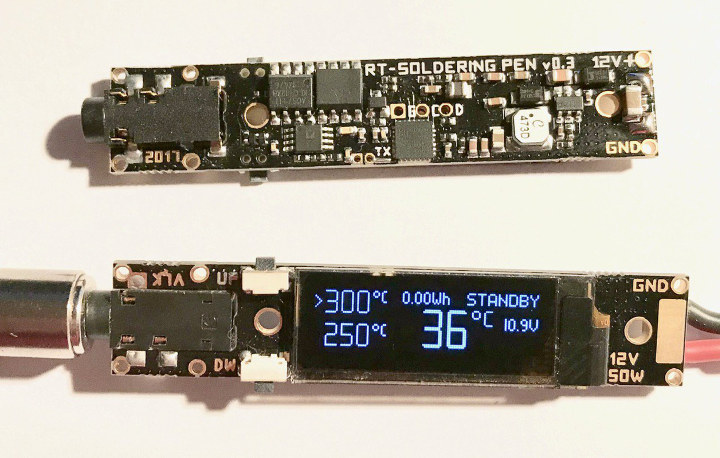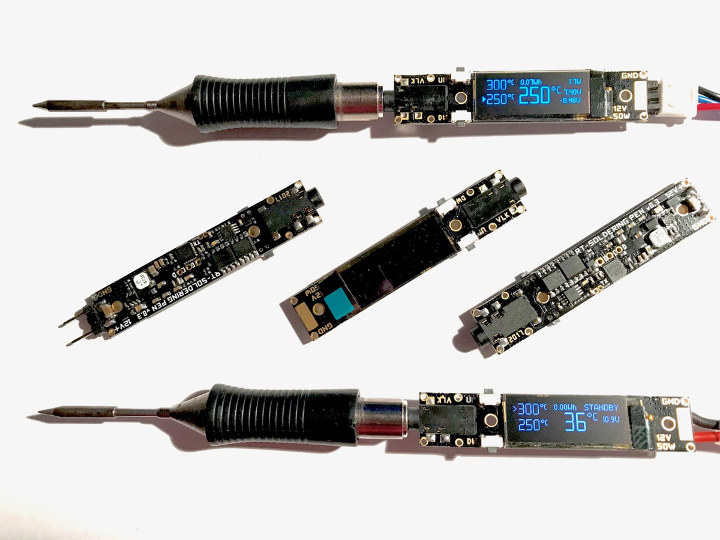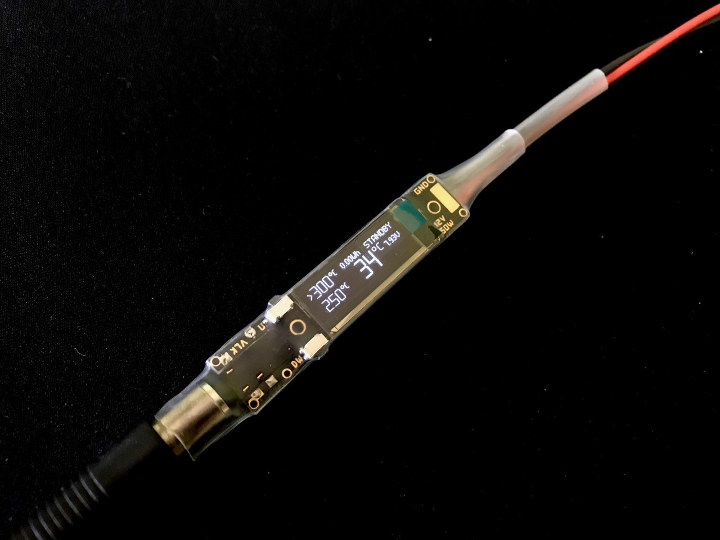The 3.5mm audio jack may be slowly disappearing from new mobile phones, but I’ve recently discovered they were also used in some soldering irons such as the upcoming TS80 USB soldering iron succeeding TS100 model.
I initially thought it was a custom design from the maker of TSxxx soldering irons, but this morning I’ve come across the “RT Soldering Pen” board which also features a 3.5mm (audio) jack and can be used to make your own soldering iron by 3D printing your own enclosure, adding some power source, and inserting one of the many Weller RT tips available into the jack.

RT soldering pen board specifications:
- MCU – STMicro STM32F031 Arm Cortex-M0 micro-controller
- Display – 0.91″ OLED display with 128×32 resolution
- Compatible with all Weller RT tips with 3.5mm jack.
- Set-point temperature – 20°C – 400°C with about +/-5°C accuracy (calibration is planed)
- Maximum measurable temperature – 500°C
- Heating speed – 30°C to 300°C in about 4s with RT-2 pen and 40W limit
- Maximum heating power – Limited to 40W by software or by supply voltage: 40W @ 11V, 20W @ 8V
- Power Supply
- Supply voltage – 5 – 18V (recommended: 7 – 15V)
- Supply current
- Idle – 15mA max
- Pulse with peaks to 6A @12V (average resistance of RT heating elements is 2 Ohm, so current depends on supply voltage)
- Regulation: PSD (PID) regulator with PWM power transfer (150ms period)

The board can be programmed with any ST-Link SWD programmer, and the firmware source code, binary release, and some documentation can be found in Github. Pavel, the developer, plans to implement left handed mode and add Fahrenheit units support soon.
Hardware resources including the main of main components and the schematics (PNG only) are available on the project’s Hackaday.io page.

But what’s about the case? There’s none for now, so you’d have to design your own, or like Pavel did, use a ø 10 mm transparent shrinkable tube. That does the job, and it’s inexpensive, just remember to peel off the OLED display protective film before putting the tube on 🙂
Here’s the soldering iron in action.
The RT soldering pen board can be purchased on Tindie for $54 plus shipping, It is not sold as a kit, so that’s the board only, and you’d need to add your own Weller RT tip, power source, and case.

Jean-Luc started CNX Software in 2010 as a part-time endeavor, before quitting his job as a software engineering manager, and starting to write daily news, and reviews full time later in 2011.
Support CNX Software! Donate via cryptocurrencies, become a Patron on Patreon, or purchase goods on Amazon or Aliexpress




